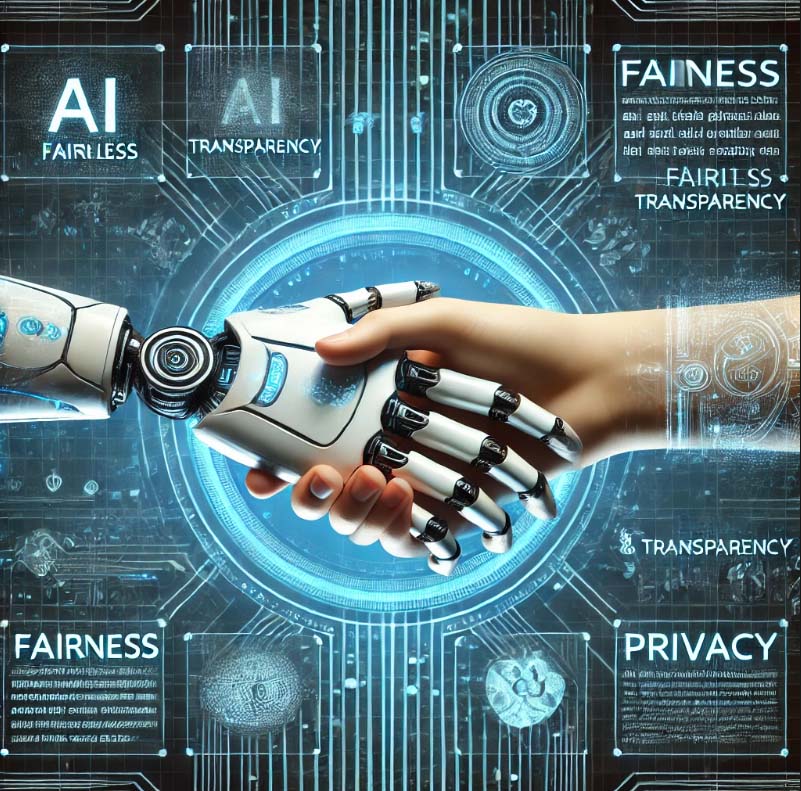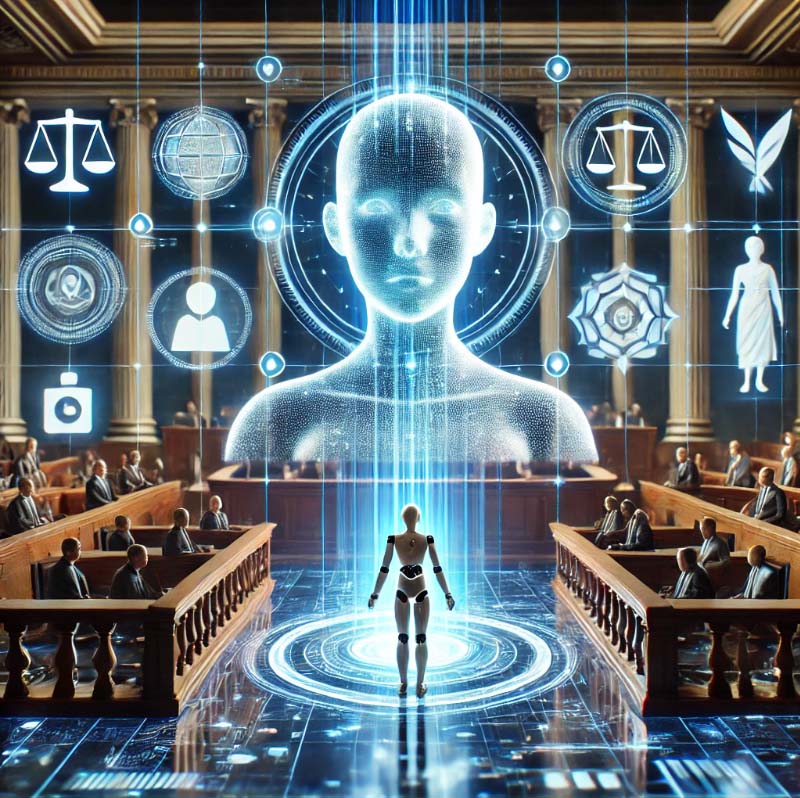Ethical AI
The era of AI (Artificial Intelligence) has arrived in the tech world. But should AI be just “smart” or also “ethical”? From the USA to Europe, everyone talks about ethical AI. Today we will understand in Hinglish – Why ethical AI is necessary. What are the challenges, and how do we create a responsible AI future? This blog is specially designed for a global audience, whether you are in America, Australia, or Dubai. Let’s dive in!
1. What is Ethical AI? Simple explanation with tea

AI = Super Smart Assistant, Par…
AI makes our lives easier – from Netflix recommendations to medical diagnosis. But Ethical AI means: developing AI with human values. Like:
- Bias-free decisions (AI never favours any race, gender or background).
- Transparency (AI’s decision-making is visible in society, not a “black box”).
- Privacy protection (AI does not leak our data).
- Accountability (If AI makes a mistake, who will be held responsible?).
Real-World Example:
In 2018, Amazon banned an AI hiring tool because it was unfairly rejecting female candidates. AI has learned historical data, in which male engineers have more. This has increased the need for Ethical AI in society!
2. Why Does Ethical AI Matter? The Truth About Fear Behind
AI is controlling our lives!
- Job Loss: Robots and AI are reducing jobs in factories. According to WHO, 85 million jobs could be replaced globally by 2030.
- Surveillance Issues: China’s “Social Credit System” uses AI to track citizens. Freedom is in danger!
- Deepfake Dangers: AI-generated videos have misused celebrities’ faces. Imagine someone using your face to spread fake news!
- But there is hope: If Ethical AI is created correctly, then these problems can be solved. Like:
- Healthcare: AI can help doctors in cancer detection, without bias.
- Climate Change: AI can reduce carbon footprint by designing smart energy systems.
3. Top Challenges of Ethical AI – With Global Examples
A. Bias in AI: “Mess inside mess outside”
AI systems learn their knowledge from training data. If there is bias in the data, then AI will also be biased. Like:
- USA: A 2020 study found that facial recognition AI recognizes Black and Asian faces 10-100 times more accurately compared to white faces. This can be a very big issue in police cases.
- Solution: Using diverse datasets and conducting audits regularly.
B. Black Box Problem: AI’s decision does not enter society.
How do complex AI models (like Deep Learning) make decisions? Even developers didn’t get it! Like:
- Loan Approval: If AI denies a loan to someone, it is necessary to tell the reason. This is why the EU’s “Right to Explanation” law was created.
C. Data Privacy: How to trust AI?
Our data (photos, location, chats) is collected for AI. Fines have been imposed on companies like Par Meta (Facebook) for data misuse. GDPR rules are strict, but global standards are still weak.
4. Ethical AI Solutions: How is the world fixing it?

A. Government Regulations – USA, EU, and Global Efforts
- EU AI Act (2024): The world’s first major AI law. High-risk AI systems (e.g. hiring, healthcare) must follow strict rules.
- USA: The White House launched an “AI Bill of Rights” in 2023, focusing on transparency and privacy.
- Global Orgs: UNESCO made Ethical AI guidelines in 2021, to which 193 countries have agreed.
B. Role of Tech Companies – Google, Microsoft, OpenAI
- Microsoft’s “Responsible AI” Framework: Checks fairness, reliability, and privacy while developing AI.
- OpenAI Safeguards: ChatGPT was trained not to generate “harmful content” before it was created.
C. Public Awareness – Wake up customers wake up!
- Common users should also speak out for Ethical AI. Social media campaigns like #StopAIBias are trending.
5. How can we contribute to the future of Ethical AI?
For developers:
- Train AI models with diverse data.
- Use tools like IBM’s AI Fairness 360 to detect bias.
For companies:
- Hire ethical AI officers.
- Third-party audits of AI systems.
For Users:
- Read the privacy policies of the apps – think while sharing data!
- Support Ethical AI on social media.
- Sundar Pichai (Google CEO) said, “AI is more profound than fire or electricity, but we need ethical frameworks to guide it.”
Conclusion: Ethical AI – not now, never?
If we do not work on Ethical AI now, the future risks could be huge. Instead of fearing it, it is necessary to take action. Like:
- AI for Good: Use AI to solve poverty, education gaps, and climate change.
- Collaborate Globally: Countries will have to set standards together.
Final Thought: Ethical AI is a journey, not a destination. Every developer, company, and user will have to play their role. You also light your share of the lamp!
Friends, this is the story of Ethical AI – of hope and hope. What do you think? Will we be able to control AI, or will AI control humans? Comments in battle! If you like the blog, don’t forget to forward it to your friends on LinkedIn, Twitter or Facebook. Thank you!









